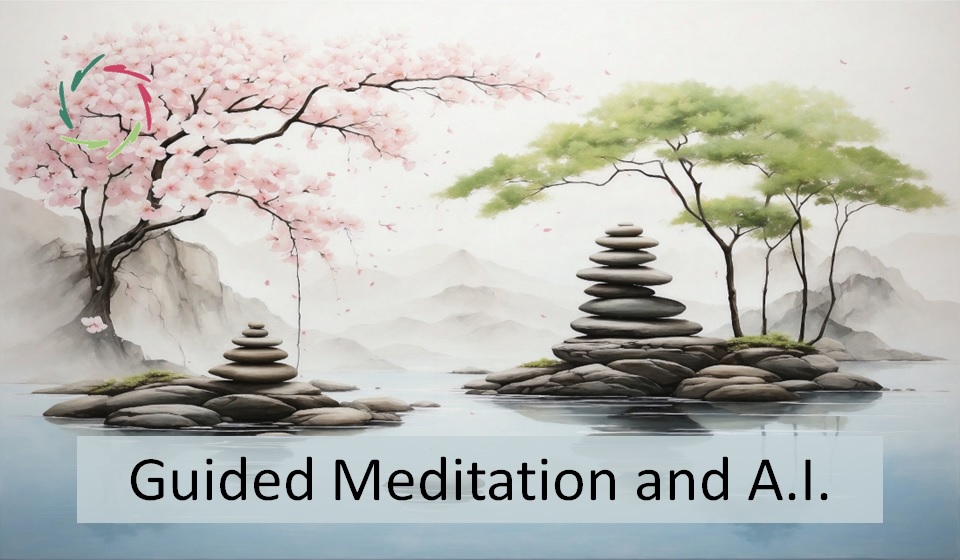Why Meditate?

Meditation is often described as having no conceptual goal. It’s not about achieving something concrete. However, while meditating, one can open oneself to four possible directions: deep relaxation, inner strength, wisdom, and Compassion.
Please read ‘Goal of Meditation.’ Meditation is something you engage in not to accomplish something tangible but to connect with deeper aspects of yourself.
Exploring the non-conceptual nature of meditation
You’re not meditating to achieve a measurable result in the traditional sense. Instead, meditation is about going beyond the conceptual, letting go of rigid thoughts and ideas to reach something deeper within yourself. As you sit in meditation, you’re not ‘doing’ in the conventional sense but allowing something to happen from within.
As you meditate, you are moving toward a place where conceptual thinking fades – which can be a nice feeling by itself – and you connect with the core of your being. From there, specific qualities can emerge — not because you force them, but because they arise naturally from the inner alignment that meditation brings.
Four directions of meditation
While meditation has no fixed conceptual goal, there are four directions you can meditate toward, each offering its own subtle but profound benefit. These aren’t goals to strive for but natural outcomes of deep meditative practice.
The following is a description of each:
Deep Relaxation
Meditation provides a space of profound relaxation, not just for the body but for the mind as well. This goes beyond surface-level calmness — it penetrates your deeper self, allowing both mind and body to release deeply held stresses.
Through meditation, you’re not forcing relaxation but inviting it. The more you allow yourself to be present in the moment, the more your body responds with natural, effortless relaxation. Over time, this relaxation permeates not only your meditative practice but also your daily life, creating a more peaceful state of being.
Inner Strength
Meditation is often misunderstood as a passive activity, but it also builds inner strength. By sitting with yourself in stillness, you confront your thoughts, emotions, and inner processes. This isn’t always easy — but it strengthens your ability to face life’s challenges with resilience.
Inner strength doesn’t come from controlling your mind but from learning to sit with whatever arises without running away from it or suppressing it. Through meditation, you develop the courage to meet yourself fully and to embrace both the light and the dark within. This quiet strength becomes a resource you can draw on in all aspects of life.
Wisdom
True wisdom goes beyond knowledge and understanding. It’s something that arises from within. Through meditation, you connect with the deeper layers of your mind — the non-conscious processes that guide your thoughts, feelings, and actions.
As you meditate, the layers of conceptual thinking begin to dissolve, and you access the wisdom that resides beyond words. This wisdom is often subtle, not something you can grasp immediately. It comes in quiet insights, gradual realizations, or a more profound understanding of life. Meditation creates the space for wisdom to emerge naturally, without the need to seek it.
Compassion
As you meditate, you become more attuned to your inner processes, and in doing so, you develop a greater sense of empathy and kindness toward others. You realize that the struggles and joys you experience are part of a shared human condition.
True Compassion arises not from obligation but from a deep connection to your being. Through meditation, you cultivate a sense of friendliness toward yourself, which naturally extends to others. This friendliness is warm, open, and non-judgmental, allowing you to relate to others from a place of genuine care. This way, meditation becomes a path to bring more Compassion into the world.
The non-conceptual path of meditation
While meditation may not have a conceptual goal, it offers profound directions for inner growth. Deep relaxation, inner strength, wisdom, and Compassion are not things you can chase after but are qualities that emerge when you meditate with openness and presence.
As you continue on your meditative journey, you may find that these qualities naturally arise, not because you force them but because you allow yourself to be fully present with whatever arises at the moment.
As these qualities emerge, you may find that meditation offers more than you ever expected.


